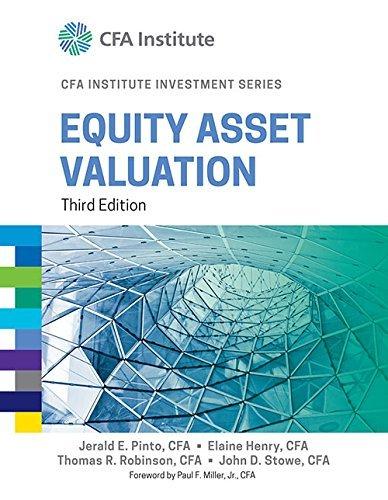Analysts commonly encounter a number of labels related to the cyclical/non-cyclical distinction. For example, non-cyclical industries have
Question:
Analysts commonly encounter a number of labels related to the cyclical/non-cyclical distinction. For example, non-cyclical industries have sometimes been sorted into defensive
(or stable) versus growth. Defensive industries and companies are those whose revenues and profits are least affected by fluctuations in overall economic activity.
These industries/companies tend to produce staple consumer goods (e.g., bread), to provide basic services (grocery stores, drug stores, fast food outlets) or to have their rates and revenues determined by contracts or government regulation (e.g., cost-ofservice, rate-of-return regulated public utilities). Growth industries would include industries with specific demand dynamics that are so strong that they override the significance of broad economic or other external factors and generate growth regardless of overall economic conditions, although their rates of growth may slow during an economic downturn.2
The usefulness of industry and company labels such as cyclical, growth, and defensive is limited. Cyclical industries as well as growth industries often have growth companies within them. A cyclical industry itself, although exposed to the effects of fluctuations in overall economic activity, may grow at an above-average rate for periods spanning multiple business cycles.3 Furthermore, when fluctuations in economic activity are large, as in the deep recession of 2008−2009, few companies escape the effects of the cyclical weakness in overall economic activity.
The defensive label is also problematic. Industries may include both companies that are growth and companies that are defensive in character, making the choice between a
“growth” and a “defensive” label difficult. Moreover, “defensive” cannot be understood as necessarily being descriptive of investment characteristics. Food supermarkets, for example, would typically be described as defensive but can be subject to profit-damaging price wars. So-called defensive industries/companies may sometimes face industry dynamics that make them far from defensive in the sense of preserving shareholders’
capital.
Step by Step Answer:






